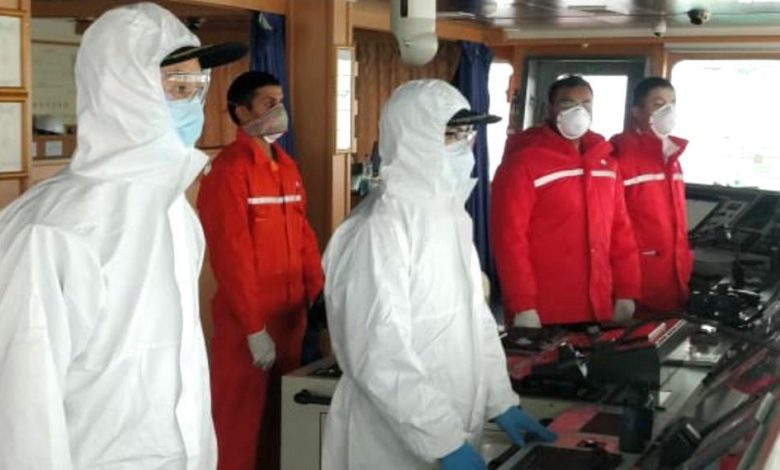Cyprus lays out how to get all seafarers vaccinated

The Cyprus shipping deputy ministry has formally proposed a practical, global approach to delivering Covid-19 vaccinations to seafarers in response to the worldwide crew change crisis. Over the past year, the need to class seafarers as key workers has received widespread support, with Cyprus now taking this one step further in suggesting the foundation of a feasible solution to inoculations.
In letters to the EU transport and health commissioners and IMO secretary-general, Cyprus shipping deputy minister, Vassilios Demetriades outlined the two strands of the proposed programme and emphasised the need for a practical, feasible and collective approach to addressing the issue of seafarer inoculations. The letter emphasised Cyprus’ determination to work with all interested parties at a global level to enable crew changes to take place, even with stricter measures being deployed during this second stage of the pandemic.
A global seafarer vaccination programme would greatly assist the enhancement of crew changes
There are challenges with the logistics of a vaccination programme for seafarers, including the country of origin or residence of the seafarers, transport and customer restrictions, availability of the approved or authorised vaccines, the two-stage vaccination process, and the subsequent time required for a seafarer to be considered as inoculated. Therefore, Cyprus believes there should be a distinction on the basis of the duration of the sea voyage. The suggested programme comprises two main strands:
For short sea shipping, national measures remain workable and regional cooperation easier to achieve.
For deep-sea shipping, Cyprus believes that vessels operating on long-distance intercontinental routes should be designated as an isolated Covid-19 zone; a bubble. The focus should therefore be on seafarers ashore. Cyprus suggests a coordinated global approach to ensure adequate numbers of approved or authorised vaccines, acceptable to all governments, are available to seafarers for inoculation in their country of residence before they travel to join their respective ships.
Vassilios Demetriades, Cyprus shipping deputy minister, explained: “Despite the international and EU efforts to date, crew changes are still very difficult, or not even possible in many countries. A global seafarer vaccination programme would greatly assist the enhancement of crew changes. While we recognise that this is a complex issue in terms of both procedures and logistics, we believe that – by working together – a practical, feasible solution can be found.”

Encouraging discussion and a topic that needs to be raised. Realistically, this is a moon shot. Crew come from all over the world, dozens and dozens of countries. The Neptune Declaration is a very significant step in terms of the industry speaking as one voice communicating the plight of seafarers and to recognize them as essential workers. This idea of vaccinating seafarers should be included in the discussion.